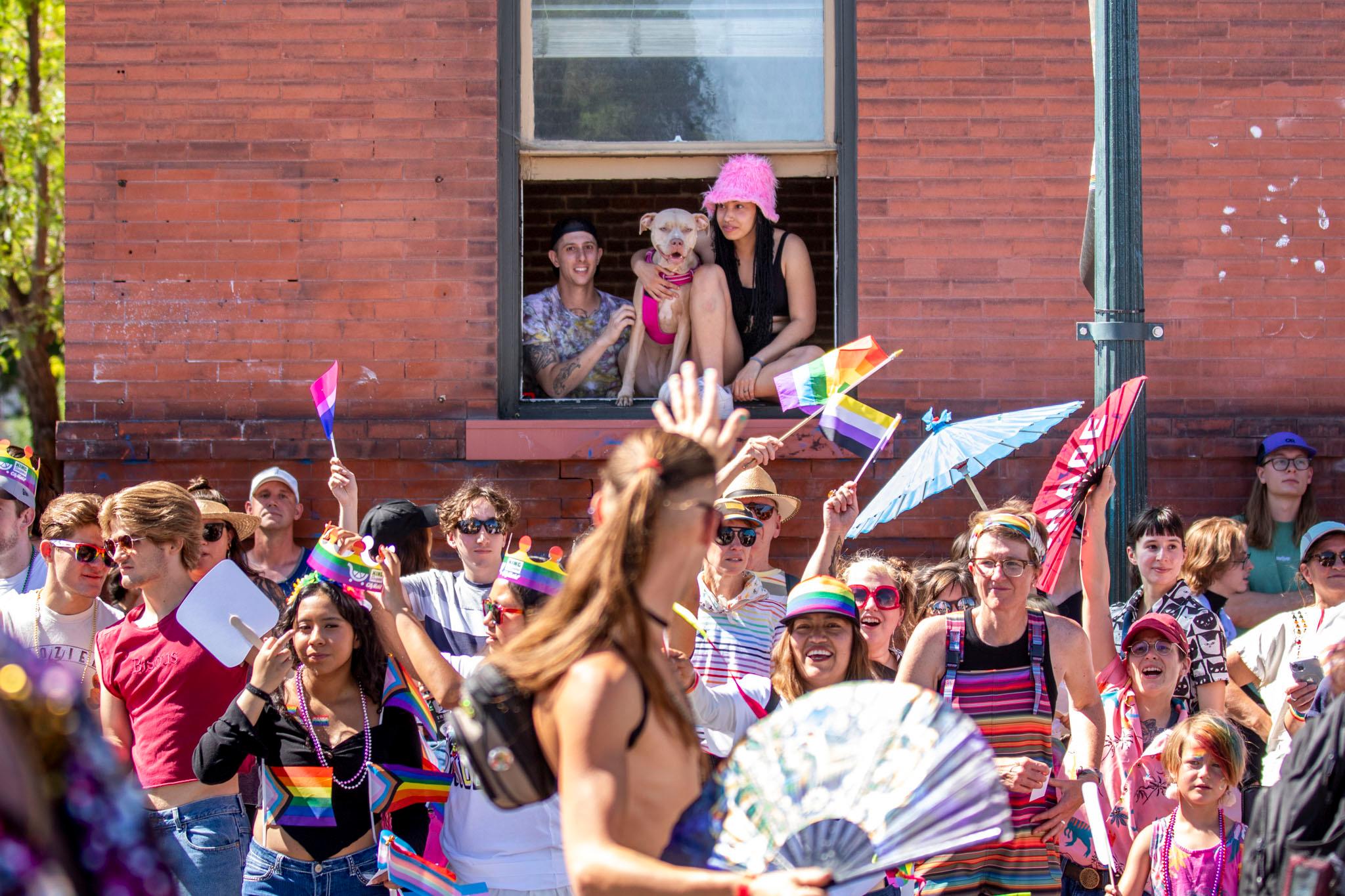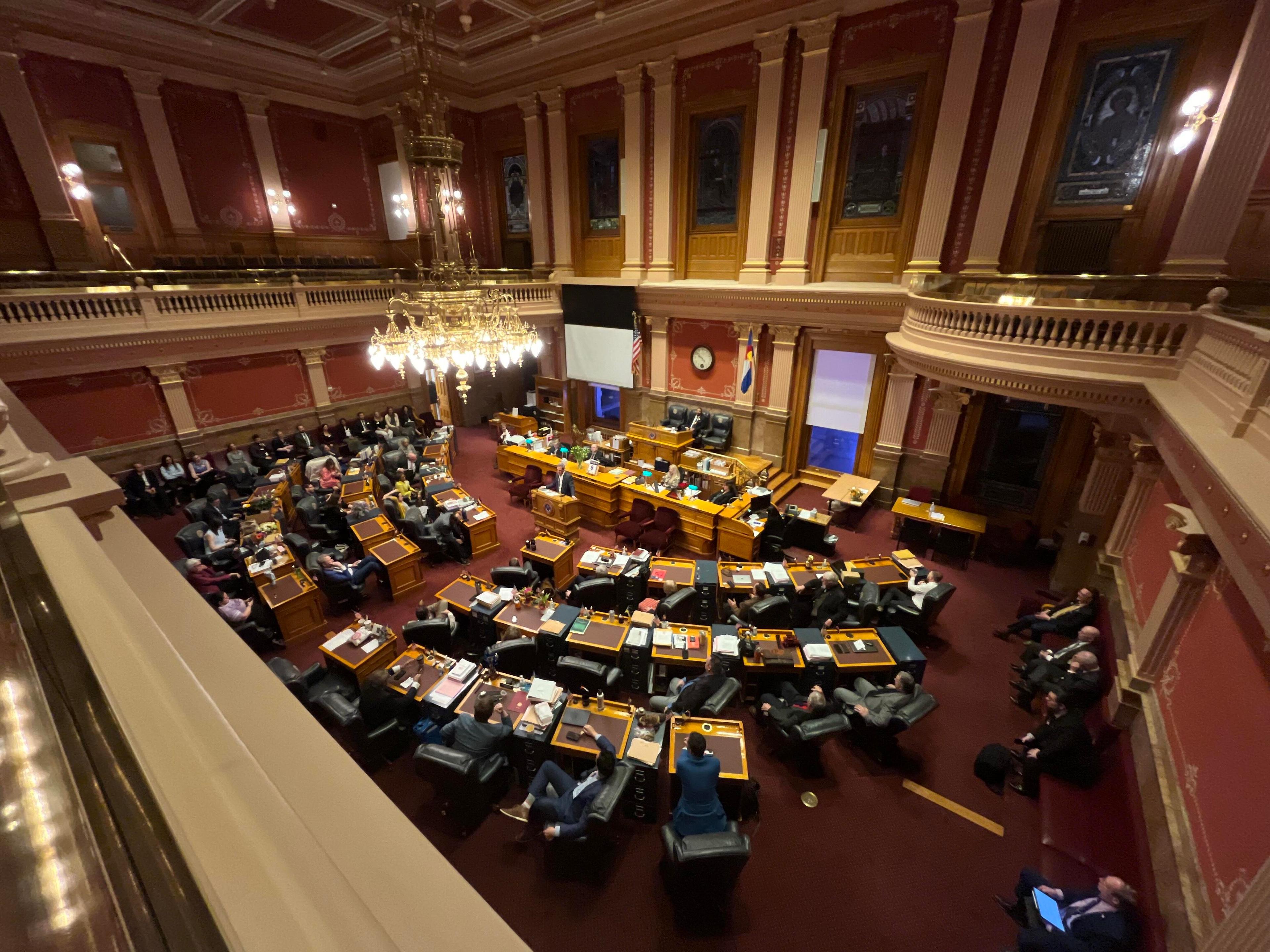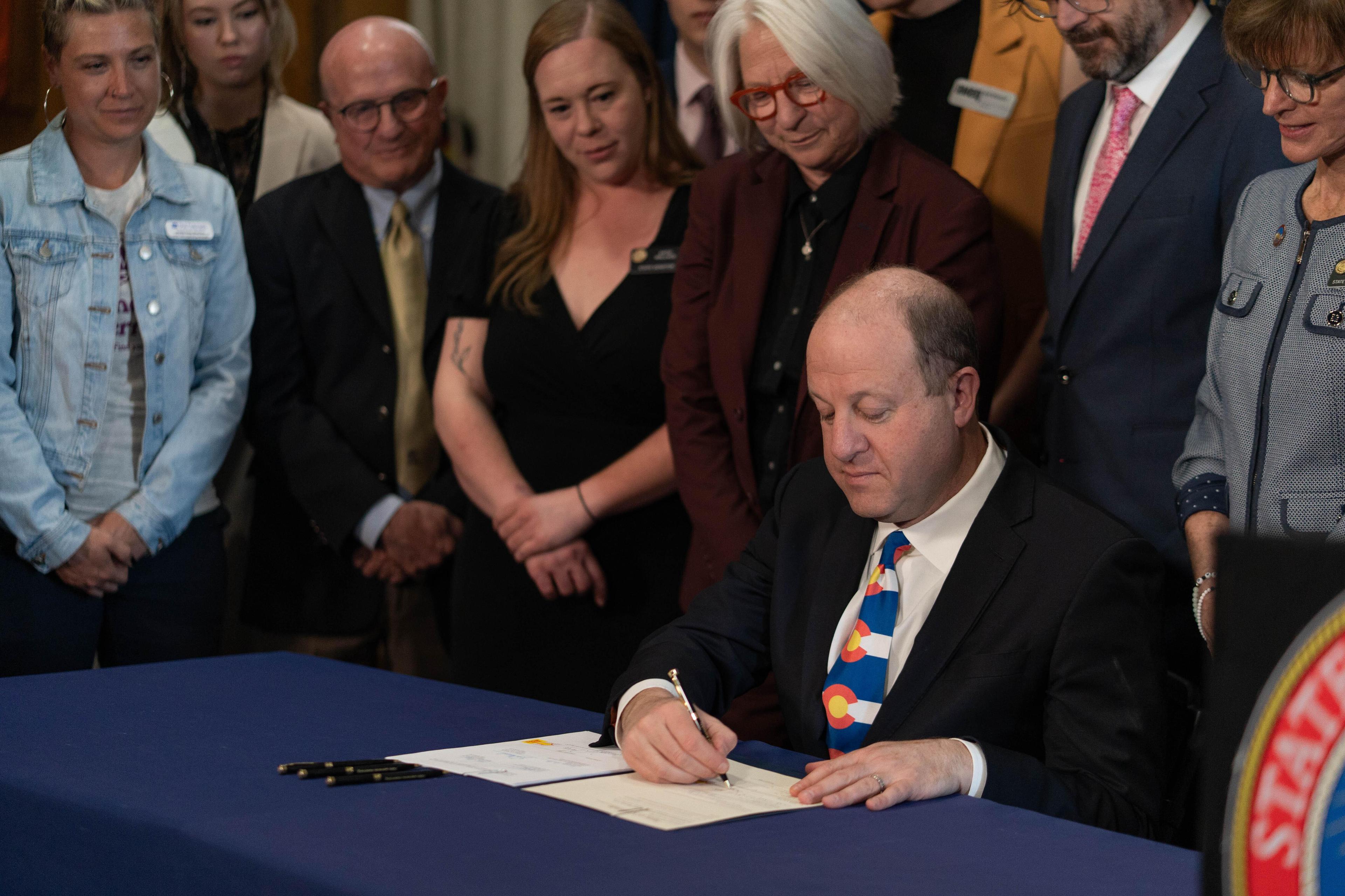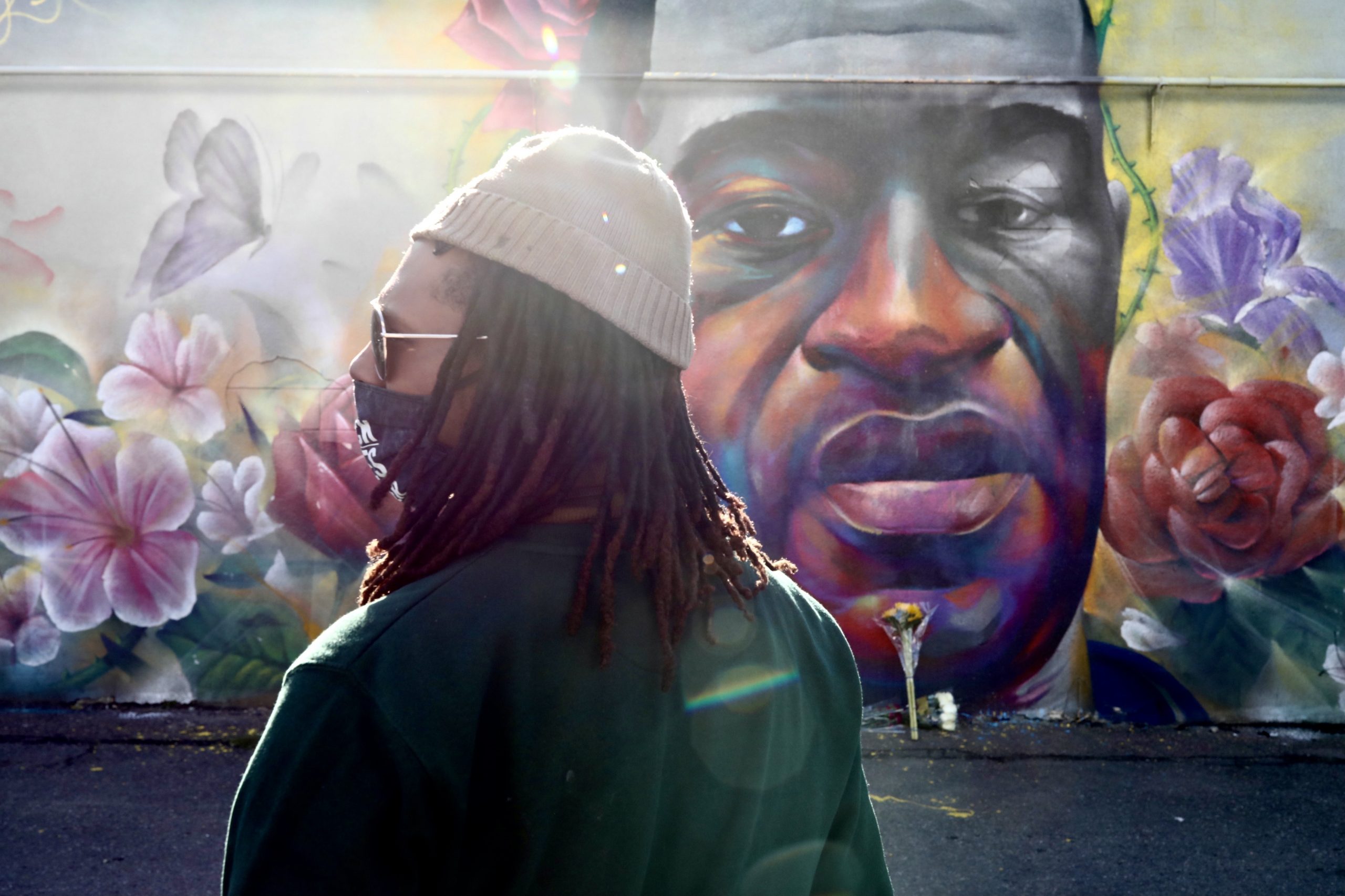
Democratic lawmakers in Colorado who’ve worked on policing reform said they are shell shocked and relieved about the guilty verdict Tuesday in the Derek Chauvin murder trial.
A jury found Chauvin guilty on all charges in the death of George Floyd, after deliberating for roughly 10 hours.
“We are relieved that we have received some sense of justice that I don't think any of us believed would come,” said Democratic Rep. Leslie Herod. She chairs the state legislature's Democratic Black Caucus, which held a press conference shortly after the verdict was announced. “I think we all came prepared to talk about what would happen when a non-guilty verdict was found.”
Instead the six lawmakers who were able to gather at the state Capitol began their briefing with a prayer thanking God for justice for the Floyd family and the nation and asking for healing.
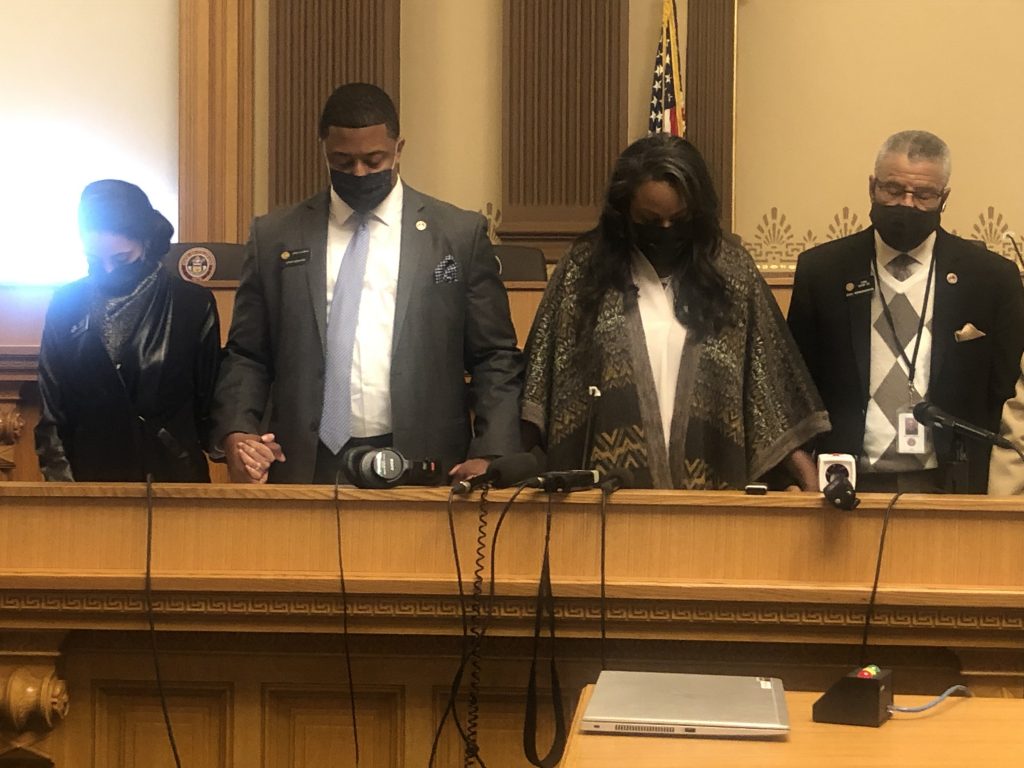
Herod said she listened for the verdict with two of her colleagues and fellow caucus members, Senators James Coleman and Rhonda Fields.
“Since the jury has been out deliberating, I can tell you that I've been very, very anxious and I couldn't breathe,” said Fields. “The reason I couldn't breathe is because I've seen this scenario play out time and time again. And the outcome has never been a just verdict.”
Keep reading: “The work has just begun”: Derek Chauvin guilty verdict draws reactions from Denverites
Herod in particular was a driving force behind last year’s police accountability bill, Senate Bill 217, which passed the legislature with overwhelming bipartisan support. The law banned police chokeholds, expanded the use of body cameras, and made it easier for people to sue officers who act in bad faith. It also requires an officer to be immediately terminated if convicted of using excessive force or failing to intervene to prevent another officer from crossing the line
“We will not be intimidated by threats,” said Herod. “We will not be stopped in this work. We will continue because we must, these incidences should never happen. What we saw in the video of George Floyd was the most egregious, but it wasn't the only type of action that's happening in our communities every day. And it's got to change.”
Colorado’s state legislature gaveled into session the day after Floyd’s murder last summer, and the ensuing protests helped galvanize a push for criminal justice reform and police accountability that has continued into this session.
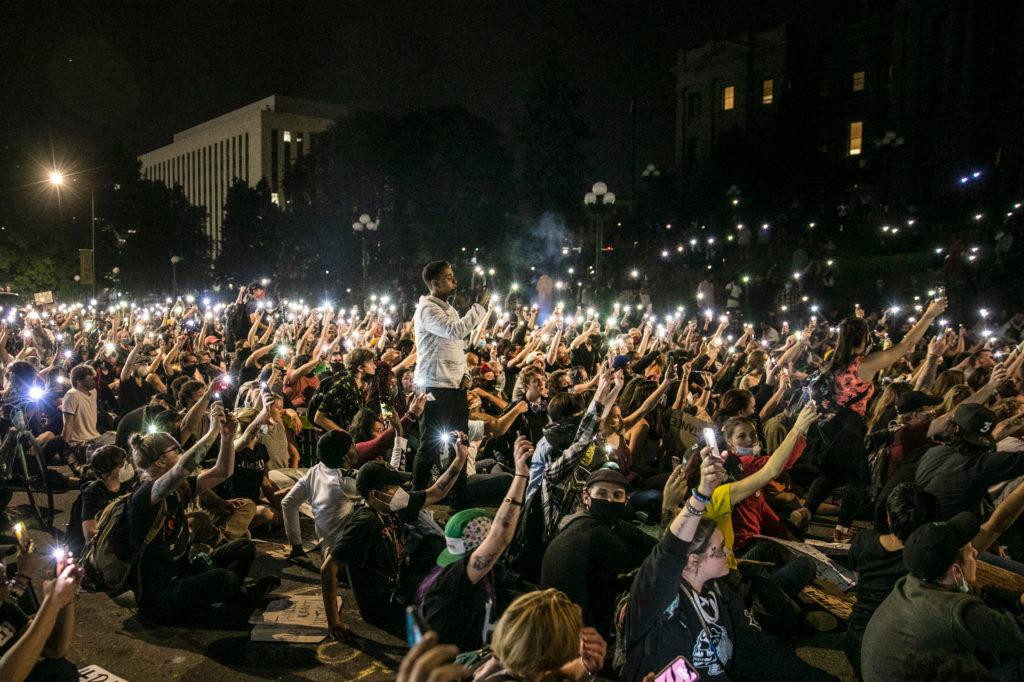
Democratic lawmakers have introduced a clean-up bill to address some concerns with the implementation of SB-217. They are also pushing measures to limit how often arrests result in jail time, reduce sentences for some crimes, and lower recidivism rates after people are released from prison. Another measure — inspired by the death of Elijah McClain in Aurora — would restrict the use of the powerful sedative ketamine in law enforcement situations.
Activists have also pushed for reforms at the local level, with both Colorado Springs and Aurora involving citizens in new police accountability efforts. And calls have gone much further — with some demanding a complete rethinking of how communities enforce public safety.
"Some people are disenchanted because reform efforts that have been going on for the last few decades have been ineffective,” said Apryl Alexander, a professor at the University of Denver and an organizer with Black Lives Matter 5280. “That's why you have a movement of people who are talking about abolition (of police departments) and talking about a reallocation of public safety budgets."
"Can we do better hiring at this point? Can we think about community response models?" Alexander said. "I think at this moment we're just trying to come up with a solution that would end this."
For Sen. Coleman, while the guilty verdict is a “single small step for equality under the law”, he said it gives him hope that his own son will not have to live in fear of law enforcement.
“Let me be clear. Derek Chauvin does not represent all police officers, but he does represent the ... racism that is prevalent within our law enforcement and judicial institutions. His actions were taken with his full expectation that regardless of the millions who witnessed this moment, that he would not be held accountable for his crime against George Floyd. It is under this expectation and tradition of racist law enforcement that countless, literally countless, black people in America have been murdered without accountability,” said Coleman.
While numerous Democrats in the legislature rushed to weigh in on the verdict, the Senate Republican caucus said it would not have a statement.
Democratic Sen. Pete Lee, chair of the Judiciary Committee and sponsor of many reform bills said the verdict was a sign the jury system had worked.
“I hope the message will be delivered, that it is not okay to arrest and subdue and ultimately kill people for minor offenses,” said Lee. “The blue line of police solidarity was broken, when over a dozen officers testified that the technique used was not standard and not acceptable. It took courage on their part to do so.”
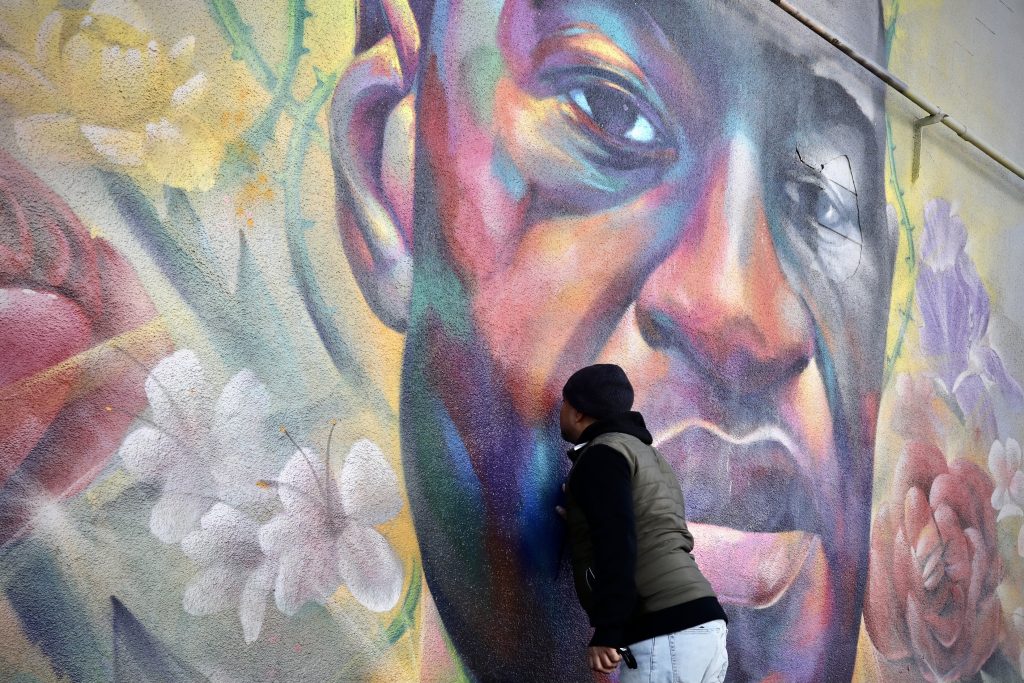
Former district attorney, Republican George Brauchler watched the duration of Chauvin’s trial and said the jury hearing the case “had a burden placed upon it that we have never ever seen a jury in America deal with.”
“They walked into the courtroom having heard, I’m sure, this is the American justice system on trial. Can you imagine being a jury on that?" Brauchler said.
Brauchler said some law enforcement officers were likely relieved by the guilty verdict.
“It has been a rough 12 to 18 months for law enforcement,” he said. “But I bet there are a bunch of officers saying, ‘right on. We should be held accountable when we overstep the line.’”
Brauchler said he hoped the community felt the criminal justice system is capable of rendering justice.
“Hey, the system can work,” Brauchler said, “regardless of who the defendant is or the victim is.”
But for many, the verdict underscored how rare it is for police officers to be convicted for on-duty killings.
Alexander, the BLM organizer, said it was important to understand how Floyd’s case has disrupted how people perceive “true racial justice” in the United States.
“What is justice? For me, justice is that this wouldn’t have happened in the first place,” Alexander said. “George Floyd should have been able to walk home. Justice is beyond just having a guilty verdict.”
Alexander said Tuesday’s outcome may feel like justice served for Floyd’s family, but she takes a broader view of what reform is needed, pointing out that police shootings continued through the trial.
“We have to recognize that justice hasn’t been served for all victims of police brutality and violence,” she said. “We spent 2020 protesting day in and day out for justice for George Floyd, Breonna Taylor and Elijah McClain, so for me, yes, we’re celebrating having an acknowledgement for justice, but we have a long ways to go.”

